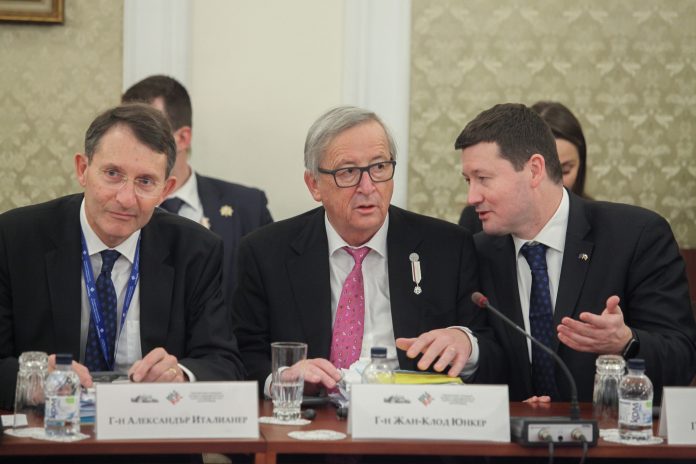The way European Commission President Jean-Claude Juncker’s chief of staff was appointed secretary-general has been criticised by the European Union Ombudsman Emily O’Reilly. In a report, her office identified four counts of maladministration by the European Commission.
The promotion of Martin Selmayr, nicknamed “the monster” by his boss, was fast-tracked in February, in a move condemned by one Euro MP as a “coup”.
As reported by the BBC, O’Reilly has agreed with the European Parliament’s assessment that the promotion had “stretched and possibly even overstretched the limits of the law”.
However, her report will not affect his promotion. She calls only for the top job to have an appointment procedure separate from that for other senior posts.
Who is Selmayr?
A lawyer originally from the German city of Bonn, Selmayr masterminded Juncker’s campaign for the presidency, and has since been described as the most powerful man in Brussels.
He has been in charge of the 32,000-strong EU bureaucracy since March.
His promotion, as described by the BBC, happened “in the space of a dizzying few minutes” at a meeting of European commissioners in February.
Selmayr was appointed deputy secretary-general and the existing top civil servant, Alexander Italianer, suddenly announced he was retiring.
While the European Parliament condemned the handling of the promotion, there were also reports that Juncker had threatened to quit if the newly appointed secretary-general was forced out.
As reported by Deutsche Welle (DW), Germany’s international broadcaster, the EU Ombudsman’s report finds that Juncker failed to follow protocol when elevating his closest aide to a top position. She also found that Juncker was less than transparent in elevating Selmayr to run the European civil service.
According to the ombudsman’s report, by failing to follow the proper procedures, the EU executive risked undermining public trust in the institution.
In a statement, European Commissioner Günther H. Oettinger, in charge of budget, human resources and translation, said the Commission has a different factual assessment than the Ombudsman. “We will provide further information to the Ombudsman in due course”.
As regards the Ombudsman’s recommendation of how the Secretary-General should be appointed in future, Oettinger said the Commission will consider how the application of the current rules and procedures can be improved in the future and applied in the same manner to all Institutions.
“I have convened an inter-institutional round table which will take place on September 25, and I hope that these discussions will allow us to guarantee the excellence and independence of the EU civil service, working for the benefit and in the common interest of our citizens,” he said.

